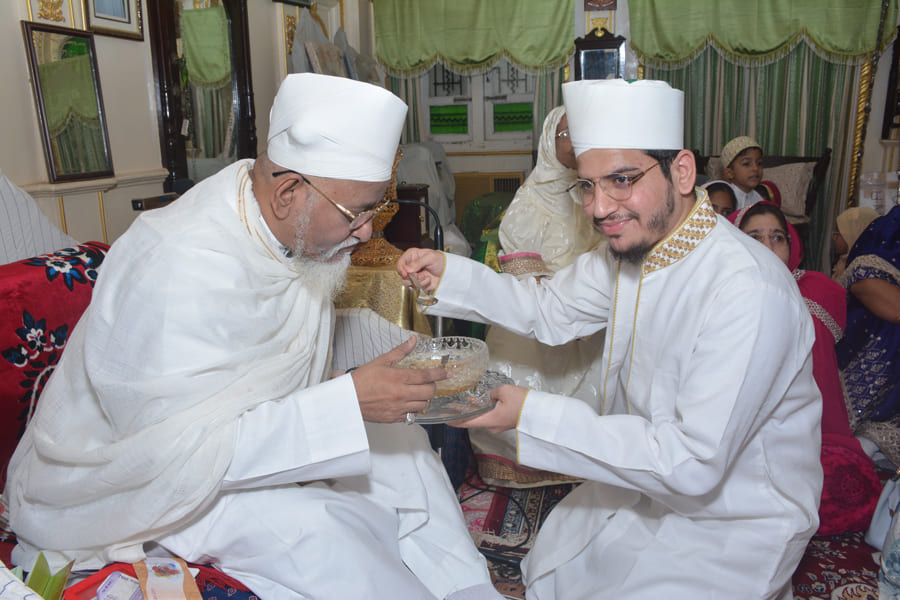
He advices them to be patient through the ups and downs of life. He encourages them to follow the principles of our Pure Religion in any circumstances and remember the sacrifice of Maulaana ‘Ali Saheb-e-Zulfiqaar (as) and Saiyedna 'Ali Shaheed-e-A’azam (aq) by whose name is our Jamaa’at named. ‘Alavi Mumin should keep all other relations with his friends and neighbours except Deeni relation. Being the mumin of Maulaana ‘Ali Saheb-e-Zulfiqaar (as), Our Deen is Baatin and should be kept in secret.
Lastly, Huzoor-e-‘Aali Saiyedna saheb (tus) recites the Du’aa on the plate of sugar cubes brought by the Bride’s father. The cubes are then distributed among the family members along with the invitation card of the marriage. Bride’s father gives Nazr ul-Maqaam to Huzoor-e-‘Aali Saiyedna saheb (tus). This marks the beginning of the auspicious days of marriage in the house.
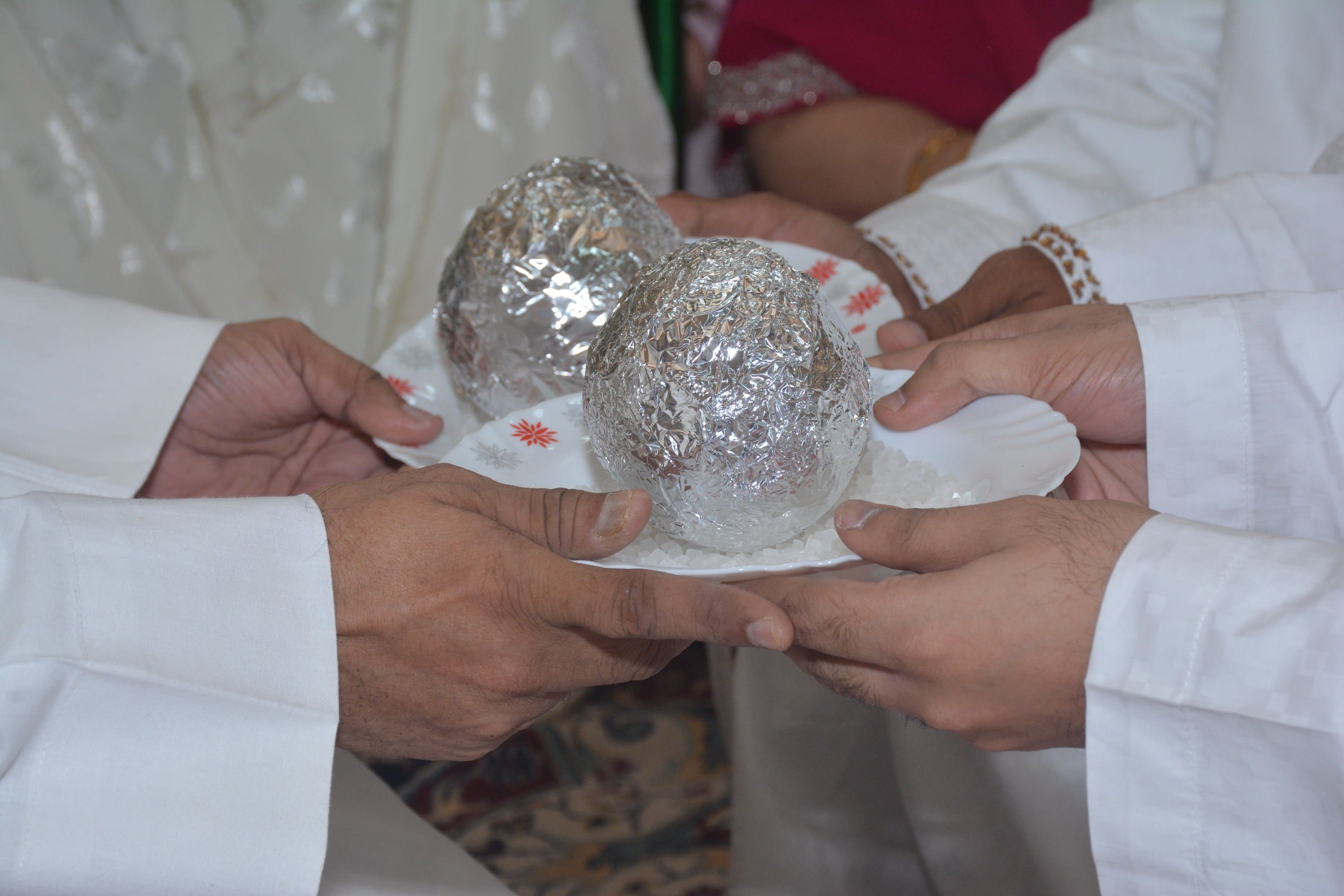
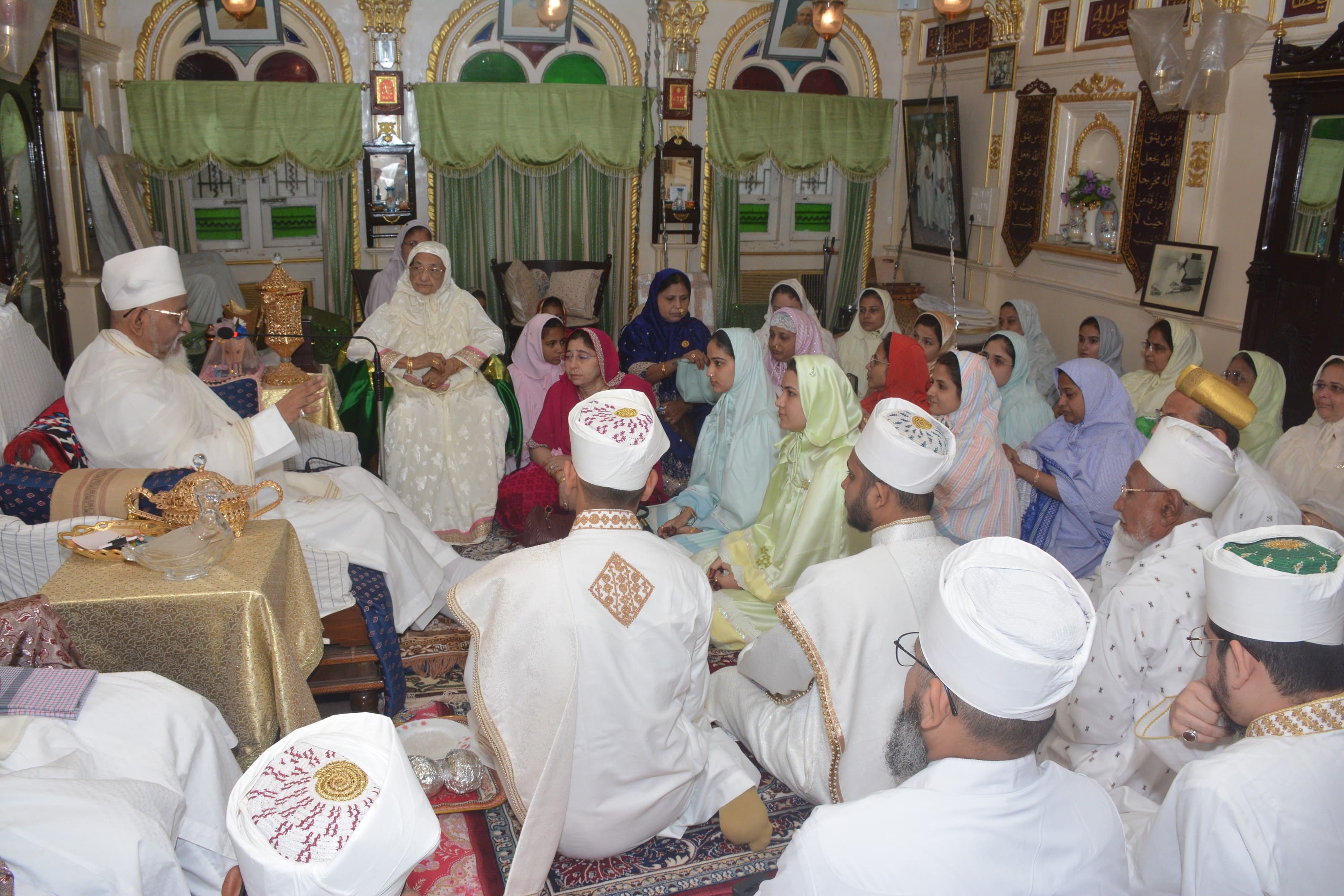
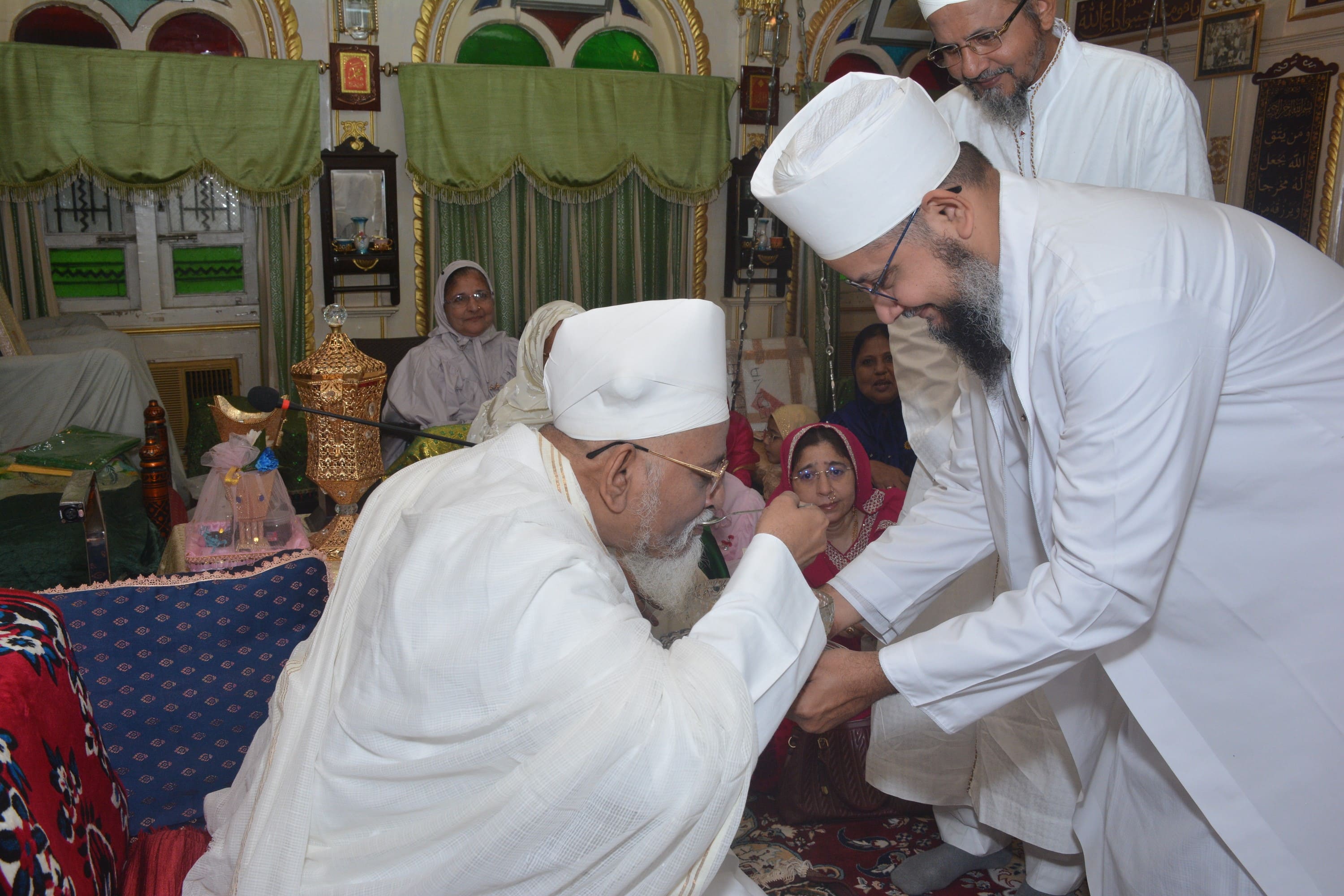
The main purpose behind this farmaan is that, after her misaaq a girl hardly gets an opportunity to come with personal contact to Saheb-e-Da'wat so that he can impart religious teachings to her for the betterment and improvement of her life. Generally, she offers namaaz in the mosque, hears bayaan of major religious occasions, attends social ceremonies, and does qadam-bosi of Saheb-e-Da'wat whenever she finds an opportunity which is not enough for her personal hidaayat . Sailing through the daily chores of the life, she unknowingly advances too far from essence of basic practices based on the foundations of our religious principles and beliefs. This goes on till she reaches the age of marriage and at this important turning point of her life; unfortunately, she is unaware about the seriousness of the time through which she is going to pass after marriage.
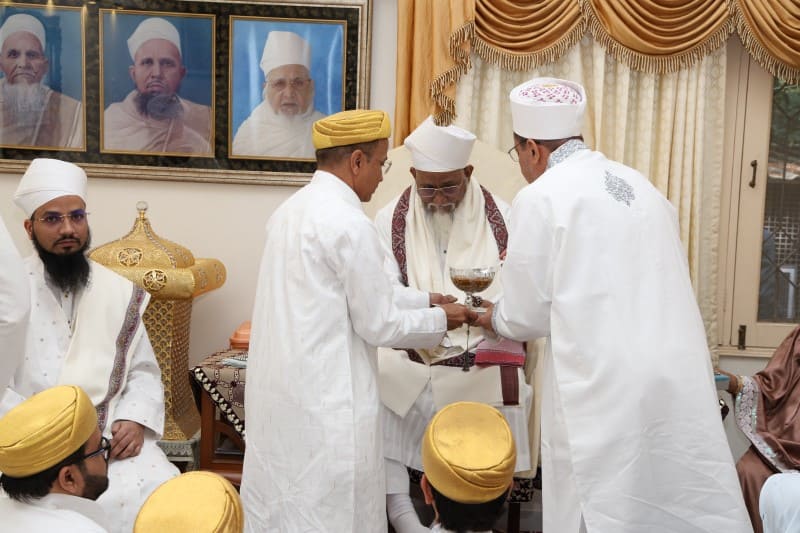
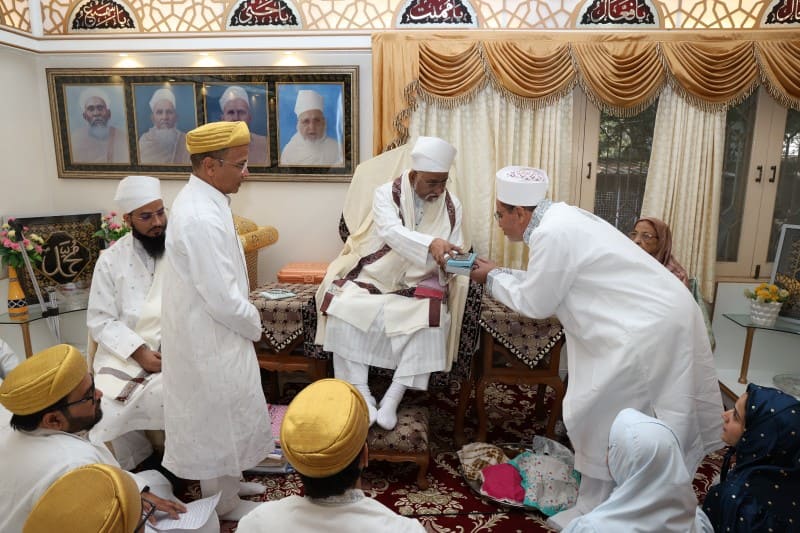
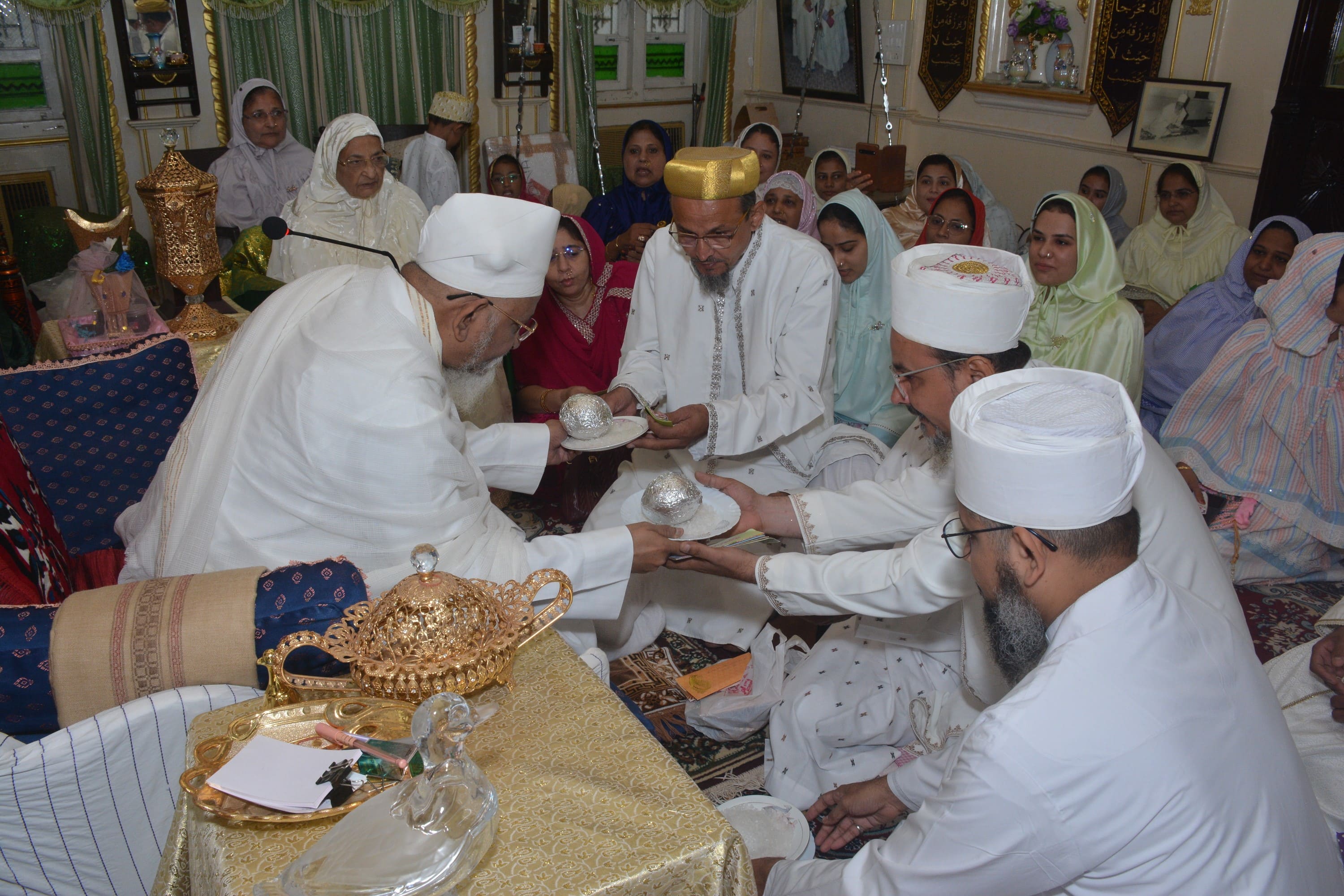
This practice of bringing bride in the markaz of Da'wat has already begun. The excerpts of the advices and the teachings that Saheb-e-Da'wat gives to the bride are mentioned here. Saheb-e-Da'wat says, "O my daughter, express your gratitude to Allaah, Who has guided you on this right path of the practices of Rasoolullaah (SAWS). A new phase of life is going to begin under the blessings of Da'wat. You are parting from the realm of compassion and love of your parents and entering into the khidmat of your would-be husband and in-laws. You have to accept your mother-in-law and father-in-law as your mother and father. You have to embrace and involve yourself in every miseries and difficulties of your in-laws."
O my dear daughter, "You have to beautify the house of in-laws with the good deeds, religiousness, righteousness, and virtuousness. You have to keep up to the expectations of in-laws who express compassion and love with you and make them happy and satisfied with your acceptable and decent behavior, respectful and soft speech and gracious character." O my beloved daughter, "It is your responsibility to protect the pride and dignity of your parents who has encountered all sought of difficulties and hardships in fostering you and has fulfilled your every wish and has made you to reach at this stage of life. Now, you have to exalt and raise their status and pride by displaying the way of righteous and moral living which has been inculcated by your parents and you have to lead a praiseworthy married life."
O my beloved daughter, "Life never goes in simple way; it changes with time just as season changes and so as our behavior change with time. Life is all studded with the time of happiness of joy coupled with the time of complexity and obstacles. Difficulties-easiness, happiness-sadness, spring-autumn, sunlight-shadow, day-night, are the two sides of life. Allaah Ta'aala likes only those who trust Him every time, who is grateful to His favors and who keeps patience on hard work. Every individual is different from the other in many aspects. No two persons are alike. So, if you encounter any difficulty in your in-laws; if some differences arise, if someone doesn't talk to you, if you don't get the desired thing, if your ideas and suggestions are not attended then please keep patience try to get along with it as long as you can. Never, in hurry, ever reveal the secrets of your in-laws to other person as it will create further complications for you." Allaah Ta'aala says, “Indeed, Allaah is with those who keep patience.” Our advices and teachings are in your heart and keep patience and surely Allaah will bring a happy end to all your difficulties and reward you for your patience.
O my esteemed daughter, "Titivate the house of your in-laws with prayers, service and love. Create religious and devout environment in the house. Maintain kindness and good relation with the relatives of your husband. Serve to your in-laws and make an attempt to make others happy by your deeds. Never intend to do anything which creates differences in the family members and makes the environment of the house disagreeable and distasteful. Be punctual in your prayers. Make a habit of attending all the majlis of Ahl ul-Bayt (AS). To visit the mausoleum of Du'aat-e-Keraam and take their blessings should be your routine practice. All these constitutes among the best of all deeds for you. You should encourage and inspire your husband and family members for the same if they are unaware of it. If you exhibit these qualities in your in-laws then verily, you will dwell in the Paradise in the life hereafter. May Allaah bless you with the character and charm of Maulatana Fatema (AS) and Maulatana Zainab (AS). May Allaah give you all happiness in your life and you succeed in this world and the hereafter. Aameen.